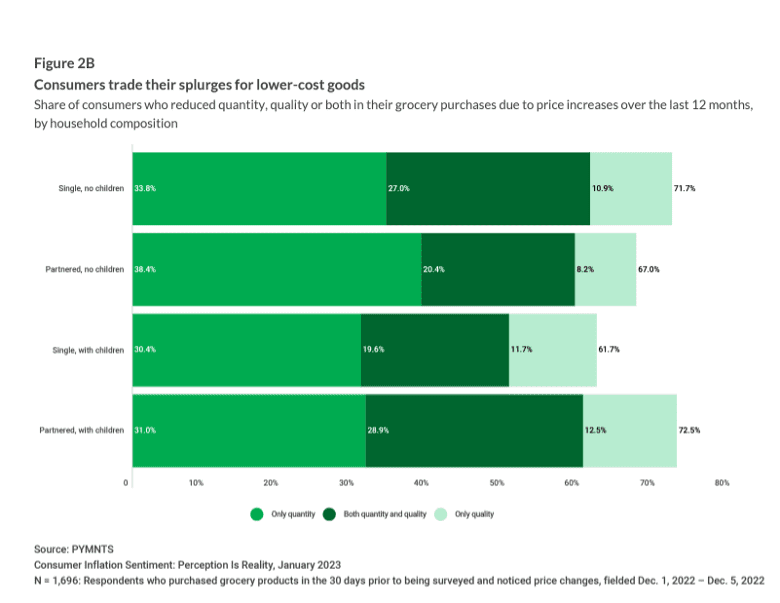73% of Families With Kids Cut Grocery Spend as Food Prices Remain High
PYMNTS research finds consumers are putting deals first when it comes to grocery shopping.
Despite inflation’s incremental, uneven shift down, consumers remain wary about when prices will begin to ease for essentials such as food, which still costs 10.2% more than it did a year ago. Even as the cost of discretionary goods slip, consumers are pushing their expectations for inflation’s end out until October 2024. These long-term personal finance constraints have led to a significant shift in behavior across demographics when it comes to grocery shopping.
Generally, behavioral shifts are more often limited to smaller slices of the population within a given time period and are not automatically adopted by other selected demographics. The importance of a change across age cohorts and financial lifestyles should not be understated, and this seismic shift has been measured in PYMNTS’ “Consumer Inflation Sentiment” report.

With a similar response rate across generational and financial lifestyle demographics, households all are downgrading their groceries — through reduced quality, quantity or some combination of both. Continual cost-cutting has led consumers to stop “unintentional” grocery shopping, as they are instead proactively seeking bargains. This includes nearly half of consumers who have switched merchants in the past year in their search for pricing relief and a greater push toward seeking in-store deals. Additional PYMNTS research has also found 39% of consumers now incorporate some mix of in-store and online shopping, with over half doing so in search of bargains.
In a PYMNTS interview, Sean Turner, co-founder and CTO of retail FinTech Swiftly, detailed how consumers have become intentional in their grocery purchasing choices. “Shoppers are clipping more coupons. They’re really trying to compare prices across different stores. They might go to the Walmart website or app and see what the product costs there, then launch one of our retailer’s apps like Save Mart’s app or the 99 Cents Only app and search for the same product there to see where it’s cheapest or where they can get a coupon or a discount.”
The good news for the sector is that, unlike discretionary spend, groceries are essential, and consumers cannot cut them out completely. However, grocers of all sizes may have to adapt to consumers’ overall behavior shifts until food prices return to reasonable levels.